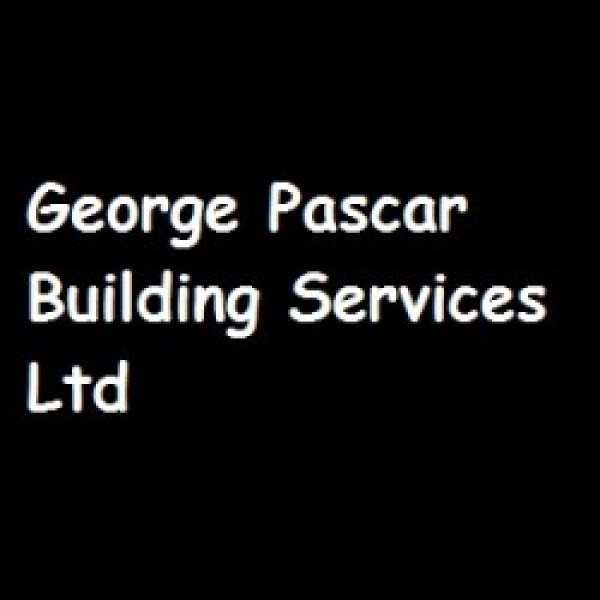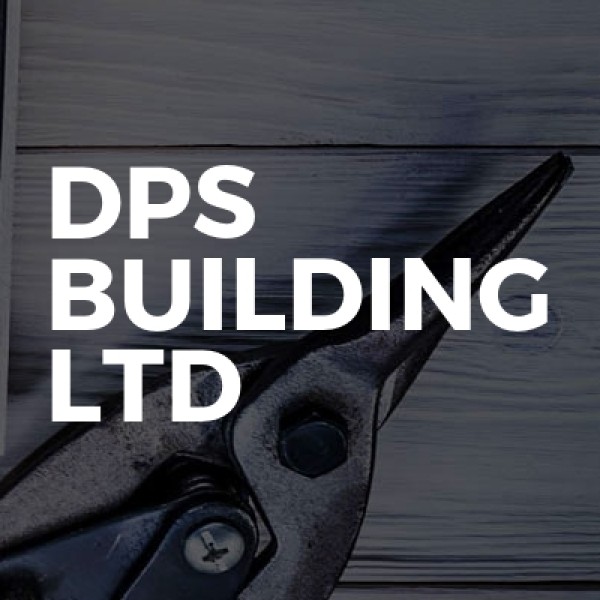Loft Conversions in Putney
Search Loft Conversions in places nearby
Understanding Loft Conversions in Putney
Loft conversions in Putney have become increasingly popular as homeowners seek to maximise their living space without the need to move. This charming area of London offers a unique blend of urban convenience and suburban tranquillity, making it an ideal location for families and professionals alike. By converting your loft, you can add significant value to your property while creating a bespoke space tailored to your needs.
Why Consider a Loft Conversion?
Loft conversions are a fantastic way to utilise unused space in your home. In Putney, where property prices are on the rise, a loft conversion can be a cost-effective alternative to moving house. Not only does it provide additional living space, but it also enhances the aesthetic appeal and functionality of your home. Whether you need an extra bedroom, a home office, or a playroom, a loft conversion can be customised to suit your lifestyle.
Financial Benefits
Investing in a loft conversion can significantly increase the value of your property. In Putney, where demand for housing is high, adding an extra room can make your home more attractive to potential buyers. According to property experts, a well-executed loft conversion can increase your home's value by up to 20%. This makes it a wise investment for those looking to enhance their property's marketability.
Personalised Living Space
One of the greatest advantages of a loft conversion is the ability to create a space that reflects your personal style and needs. Whether you envision a serene retreat, a vibrant playroom, or a functional office, the possibilities are endless. With the help of skilled architects and designers, you can transform your loft into a unique and inviting area that complements the rest of your home.
Types of Loft Conversions
There are several types of loft conversions to consider, each with its own set of benefits and considerations. The choice largely depends on the structure of your existing roof, your budget, and your personal preferences. Here are the most common types of loft conversions in Putney:
Dormer Loft Conversion
A dormer loft conversion is one of the most popular choices in Putney. It involves extending the existing roof to create additional headroom and floor space. This type of conversion is ideal for properties with limited space and can be designed to blend seamlessly with the existing architecture. Dormer conversions are versatile and can accommodate various room layouts, making them a practical choice for many homeowners.
Mansard Loft Conversion
Mansard conversions are typically found in terraced houses and involve altering the roof structure to create a flat roof with a slight slope. This type of conversion offers maximum space and is often used to create multiple rooms. While it requires more extensive construction work, a mansard conversion can significantly enhance the overall appearance and value of your home.
Hip to Gable Loft Conversion
For semi-detached or detached properties with a hipped roof, a hip to gable conversion is an excellent option. This involves extending the gable wall and altering the roofline to create additional space. Hip to gable conversions are ideal for creating a spacious and airy room, and they can be combined with a rear dormer for even more space.
Velux Loft Conversion
A Velux loft conversion is the least invasive option, as it does not require any changes to the existing roof structure. Instead, Velux windows are installed to provide natural light and ventilation. This type of conversion is perfect for those on a budget or for properties with limited roof space. While it may not offer as much additional space as other conversions, it is a cost-effective way to enhance your home's functionality.
Planning Permission and Building Regulations
Before embarking on a loft conversion in Putney, it's essential to understand the planning permission and building regulations involved. While some loft conversions fall under permitted development rights, others may require planning permission. It's crucial to consult with your local planning authority to ensure compliance with all regulations.
Permitted Development Rights
In many cases, loft conversions can be carried out under permitted development rights, meaning you won't need to apply for planning permission. However, there are specific criteria that must be met, such as the height and volume of the conversion. It's important to verify that your project qualifies for permitted development to avoid any legal issues.
When Planning Permission is Required
If your loft conversion involves significant alterations to the roof structure or exceeds the limits of permitted development, you will need to apply for planning permission. This process can take several weeks, so it's advisable to factor this into your project timeline. Working with an experienced architect or builder can help streamline the application process and ensure all necessary documentation is submitted.
Building Regulations
Regardless of whether planning permission is required, all loft conversions must comply with building regulations. These regulations ensure that the conversion is structurally sound, energy-efficient, and safe for habitation. Key areas covered by building regulations include fire safety, insulation, and structural integrity. It's essential to work with a qualified professional to ensure your conversion meets all necessary standards.
Choosing the Right Professionals
Undertaking a loft conversion is a significant investment, so it's crucial to choose the right professionals to bring your vision to life. From architects to builders, each plays a vital role in the success of your project. Here's how to select the best team for your loft conversion in Putney:
Finding a Reputable Architect
An architect is responsible for designing your loft conversion and ensuring it meets all planning and building regulations. Look for an architect with experience in loft conversions and a portfolio of successful projects. Personal recommendations and online reviews can also provide valuable insights into their reputation and reliability.
Selecting a Skilled Builder
The builder you choose will be responsible for executing the conversion, so it's essential to select someone with a proven track record. Request quotes from multiple builders and compare their experience, qualifications, and customer feedback. A skilled builder will work closely with your architect to ensure the project is completed to a high standard and within budget.
Working with Interior Designers
Once the structural work is complete, an interior designer can help you create a cohesive and stylish space. They can assist with selecting colours, furnishings, and layouts that complement your home's existing decor. An experienced interior designer will have a keen eye for detail and a deep understanding of current design trends, ensuring your loft conversion is both functional and aesthetically pleasing.
Cost Considerations
The cost of a loft conversion in Putney can vary significantly depending on the type of conversion, the size of the space, and the quality of materials used. It's important to establish a realistic budget and consider all potential expenses before starting your project.
Factors Affecting Cost
Several factors can influence the cost of a loft conversion, including:
- Type of Conversion: Dormer and mansard conversions tend to be more expensive due to the extensive structural work involved.
- Size of the Space: Larger lofts will require more materials and labour, increasing the overall cost.
- Quality of Materials: High-end finishes and fixtures can significantly impact the final price.
- Professional Fees: Architect, builder, and interior designer fees should be factored into your budget.
Budgeting Tips
To ensure your loft conversion stays within budget, consider the following tips:
- Obtain multiple quotes from architects and builders to compare costs.
- Set aside a contingency fund for unexpected expenses.
- Prioritise essential features and be flexible with non-essential elements.
- Consider phased construction to spread costs over time.
Maximising Space and Functionality
A successful loft conversion not only adds space but also enhances the functionality of your home. By carefully planning the layout and design, you can create a versatile and efficient living area that meets your needs.
Optimising Layout
When designing your loft conversion, consider how the space will be used and plan the layout accordingly. Open-plan designs can create a sense of spaciousness, while partition walls can provide privacy for bedrooms or offices. Think about the flow of the space and how natural light can be maximised through strategic window placement.
Incorporating Storage Solutions
Storage is often a concern in loft conversions, but with clever design, you can make the most of every inch. Built-in wardrobes, shelving, and under-eaves storage can help keep the space organised and clutter-free. Consider using multifunctional furniture, such as ottomans or beds with storage drawers, to further enhance the room's practicality.
Enhancing Natural Light
Natural light can transform a loft conversion, making it feel bright and inviting. Velux windows, skylights, and dormer windows are excellent options for bringing light into the space. Consider the orientation of your home and the position of the sun throughout the day to maximise the amount of natural light your loft receives.
Frequently Asked Questions
What is the average cost of a loft conversion in Putney?
The cost of a loft conversion in Putney can range from £20,000 to £60,000, depending on the type of conversion and the quality of materials used. It's important to obtain detailed quotes from multiple professionals to get an accurate estimate for your project.
Do I need planning permission for a loft conversion in Putney?
Many loft conversions in Putney can be carried out under permitted development rights, meaning planning permission is not required. However, if your conversion involves significant structural changes or exceeds the limits of permitted development, you will need to apply for planning permission.
How long does a loft conversion take?
The duration of a loft conversion can vary depending on the complexity of the project. On average, a loft conversion can take between 6 to 12 weeks to complete. It's important to factor in additional time for planning and obtaining necessary approvals.
Can I live in my home during the loft conversion?
In most cases, you can continue to live in your home during a loft conversion. However, there may be some disruption, particularly during the initial stages of construction. It's advisable to discuss this with your builder to understand the potential impact on your daily routine.
What are the most popular uses for a loft conversion?
Loft conversions are versatile spaces that can be used for a variety of purposes. Popular uses include additional bedrooms, home offices, playrooms, and guest suites. The choice ultimately depends on your personal needs and lifestyle.
How can I ensure my loft conversion is energy-efficient?
To ensure your loft conversion is energy-efficient, consider using high-quality insulation materials and energy-efficient windows. Incorporating sustainable design elements, such as solar panels or energy-efficient lighting, can also help reduce your home's overall energy consumption.
In conclusion, loft conversions in Putney offer a fantastic opportunity to enhance your home's space and value. By carefully planning and working with experienced professionals, you can create a beautiful and functional living area that meets your needs and complements your lifestyle. Whether you're looking to add an extra bedroom, a home office, or a playroom, a loft conversion can provide the perfect solution for your growing family or changing needs.





































